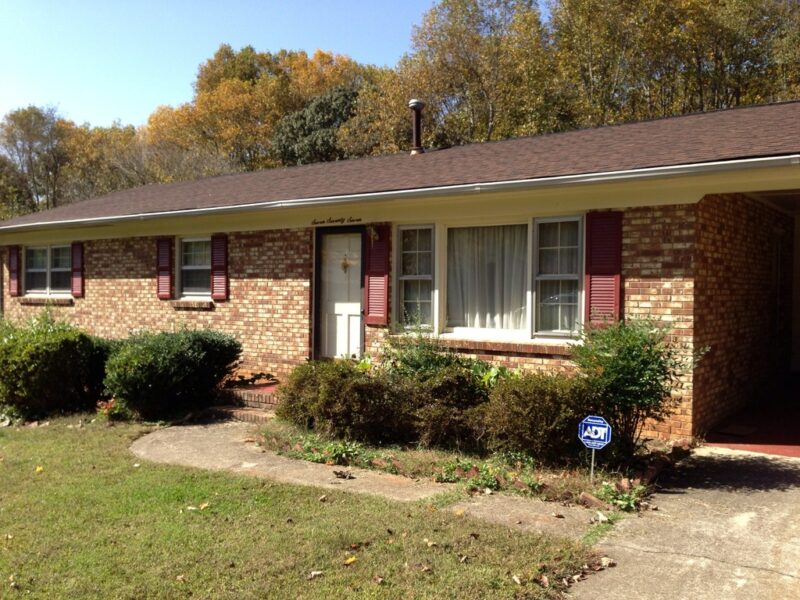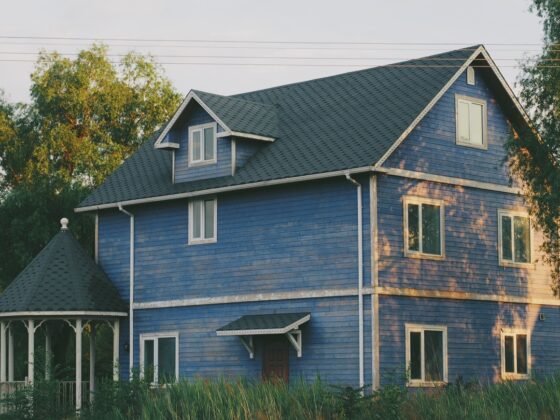The Pros and Cons of Tract Homes
Tract homes, also known as production homes or cookie-cutter homes, have become increasingly popular in recent years. These homes are built in large quantities by a single builder, often in a planned community. While there are many advantages to living in a tract home, it’s important to consider the potential disadvantages as well. In this article, we’ll explore some of the drawbacks of tract homes and help you make an informed decision.

1. Lack of uniqueness
One of the main criticisms of tract homes is their lack of individuality. These homes are often designed with a standardized floor plan and limited customization options. If you’re someone who values unique architectural features or wants to express your personal style through your home, a tract home may not be the best fit for you.
However, it’s worth noting that some builders offer limited customization options, allowing homeowners to add their personal touches to the design. So, while tract homes may lack uniqueness overall, there are still opportunities for some level of customization.
2. Limited lot sizes
Another disadvantage of tract homes is the limited lot sizes. Due to the high demand for these homes, builders often maximize their profits by minimizing the size of each lot. This means that you may have less outdoor space compared to other types of homes. If you enjoy gardening, entertaining, or simply having a spacious backyard, this could be a drawback for you.
However, it’s important to remember that smaller lots also mean less maintenance and upkeep. So, if you prefer a low-maintenance lifestyle or don’t have the time or inclination for extensive yard work, a smaller lot size might actually be a benefit.
3. Lack of architectural diversity
Tract homes are known for their uniformity, both in terms of design and architectural style. If you appreciate a diverse neighbourhood with a variety of architectural styles, a tract home community may not fulfil that desire. These communities often have a consistent look and feel, which some people find monotonous.
On the other hand, the uniformity of tract homes can create a sense of community and cohesion. If you value a neighbourhood where all the homes blend well together and have a cohesive aesthetic, a tract home community might be perfect for you.
4. Potential for construction defects
Since tract homes are built in large quantities, sometimes at a rapid pace, there is a potential for construction defects. With tight deadlines and the pressure to meet demand, some builders may cut corners or overlook certain details. It’s essential to conduct thorough inspections and work with reputable builders to minimize the risk of construction defects.
However, it’s worth noting that not all tract homes suffer from construction defects. Many reputable builders prioritize quality and take pride in their work. Researching the builder’s reputation and reading reviews from previous homeowners can help you gauge their commitment to craftsmanship.
5. Limited customization during construction
When purchasing a tract home, the construction process is usually already underway or even completed. This means that you have limited opportunities to customize the layout or features of the home. If you have specific requirements or preferences that are not met by the builder’s standard options, this could be a disadvantage.
However, keep in mind that some builders offer post-construction customization options, allowing homeowners to make modifications or upgrades after the purchase. While it may not offer the same level of customization as building a custom home, it can still provide some flexibility to tailor the home to your needs.
Conclusion
Tract homes have their advantages and disadvantages, just like any other type of home. It’s crucial to weigh these factors against your personal preferences and lifestyle. If you value affordability, convenience, and a sense of community, a tract home might be the perfect choice for you. However, if you prioritize uniqueness, architectural diversity, and extensive customization options, you may want to explore other housing options. Ultimately, the decision rests on finding a home that aligns with your needs and aspirations.
Frequently Asked Questions
Tract homes often come with a lack of uniqueness due to standardized floor plans and limited customization options. They may also have smaller lot sizes, which can be a drawback for those who value a spacious backyard.
The architectural uniformity of tract homes can lead to a lack of diversity in the neighborhood’s appearance, which some people might find monotonous. However, this can also create a sense of community and cohesio.
Since tract homes are built quickly and in large quantities, there is a potential for construction defects due to tight deadlines and the pressure to meet demand. It’s important to conduct thorough inspections and choose reputable builders to minimize these risks.
Yes, tract home developments often have community rules that homeowners are contractually obliged to adhere to, which can limit personal expression and changes to the property.
Tract homes may have a limited resale value due to their uniformity and the commonality of the design within the community. This can make them less appealing to buyers looking for unique features or those who wish to customize their homes.









